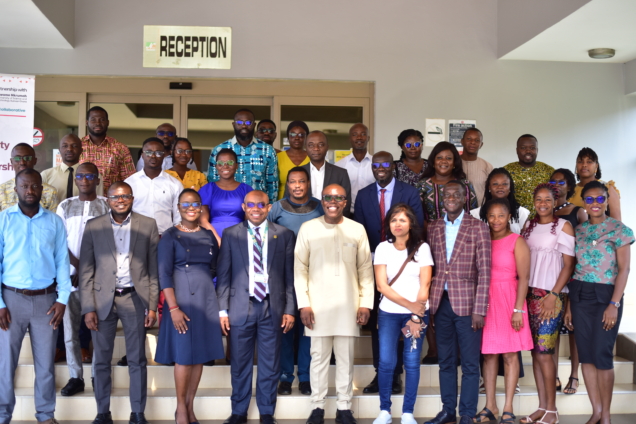The Pro Vice-Chancellor of the Kwame Nkrumah University of Science and Technology, Prof. Ellis Owusu-Dabo has expressed concerns about the poor state of orthodox medical practice in Ghana.
He believes the forcing of people into the health sector has resulted in substandard health delivery.
Prof. Owusu-Dabo who is also the principal investigator of the Mastercard Foundation Africa Higher Education Health Collaborative said this at the opening ceremony of the short course in community health entrepreneurship by the Collaborative in Kumasi.
“The already known traditional area in health which is known as orthodox medicine or medical practice is suffering in this country. And many people who have gotten into our profession were perhaps forced into the profession.
“We want a doctor, we want a nurse, we want this, and we want that. The consequences of these actions and the ramification thereof I promise you if we don’t change we are going to be seeing a lot of medicolegal issues in this country,” he said.
He also mentioned that the medical profession is losing what characterizes it as a noble profession.
“When we used to call the health profession a noble profession there were a lot of several things that characterized he health profession.
“Some of us have bleeding hearts because we are losing all those attributes that characterize the so called noble profession.
“Whether you are biomedical scientist, a nurse, a doctor or a physician assistant you apply yourself dutifully to certain attributes; those attributes I daresay we are losing them,” he said.
The community health entrepreneurship is a short course organized by the Mastercard Foundation Africa Higher Education Health Collaborative in partnership with the Kwame Nkrumah University of Science and Technology.
This course will equip 20 selected community health personnel from across the country with requisite skills in entrepreneurship to stem the brain drain menace.
The programme is under the health employment pillar of the MasterCard Foundation Africa Higher Education Health Collaborative.
The health employment pillar aims to expand and improve current capacities to train primary healthcare workers.
Provost of the College of Health Sciences, Prof. Christian Agyare mentioned that “there is huge opportunity for building and scaling human capital within the sector. To meet current market demands, health workers require differentiated competencies including tangible skills that can be marketed to prospective employers but also encourage self-employment when feasible.”
Latest Stories
-
We’ll embrace cutting-edge technologies to address emerging healthcare needs – Prof. Antwi-Kusi
14 minutes -
Nana Aba Anamoah, Cwesi Oteng to attend Philip Nai and Friends’ charity event
19 minutes -
Environmental protection officers receive training on how to tackle climate change
22 minutes -
CLOGSAG vows to resist partisan appointments in Civil, Local Government Service
2 hours -
Peasant Farmers Association welcomes Mahama’s move to rename Agric Ministry
2 hours -
NDC grateful to chiefs, people of Bono Region -Asiedu Nketia
2 hours -
Ban on smoking in public: FDA engages food service establishments on compliance
2 hours -
Mahama’s administration to consider opening Ghana’s Mission in Budapest
2 hours -
GEPA commits to building robust systems that empower MSMEs
2 hours -
Twifo Atti-Morkwa poultry farmers in distress due to high cost of feed
2 hours -
Central Region PURC assures residents of constant water, power supply during yuletide
2 hours -
Election victory not licence to misbehave – Police to youth
2 hours -
GPL 2024/2025: Nations thrash struggling Legon Cities
2 hours -
Electoral offences have no expiry date, accountability is inevitable – Fifi Kwetey
2 hours -
Ghanaians to enjoy reliable electricity this Christmas – ECG promises
2 hours

